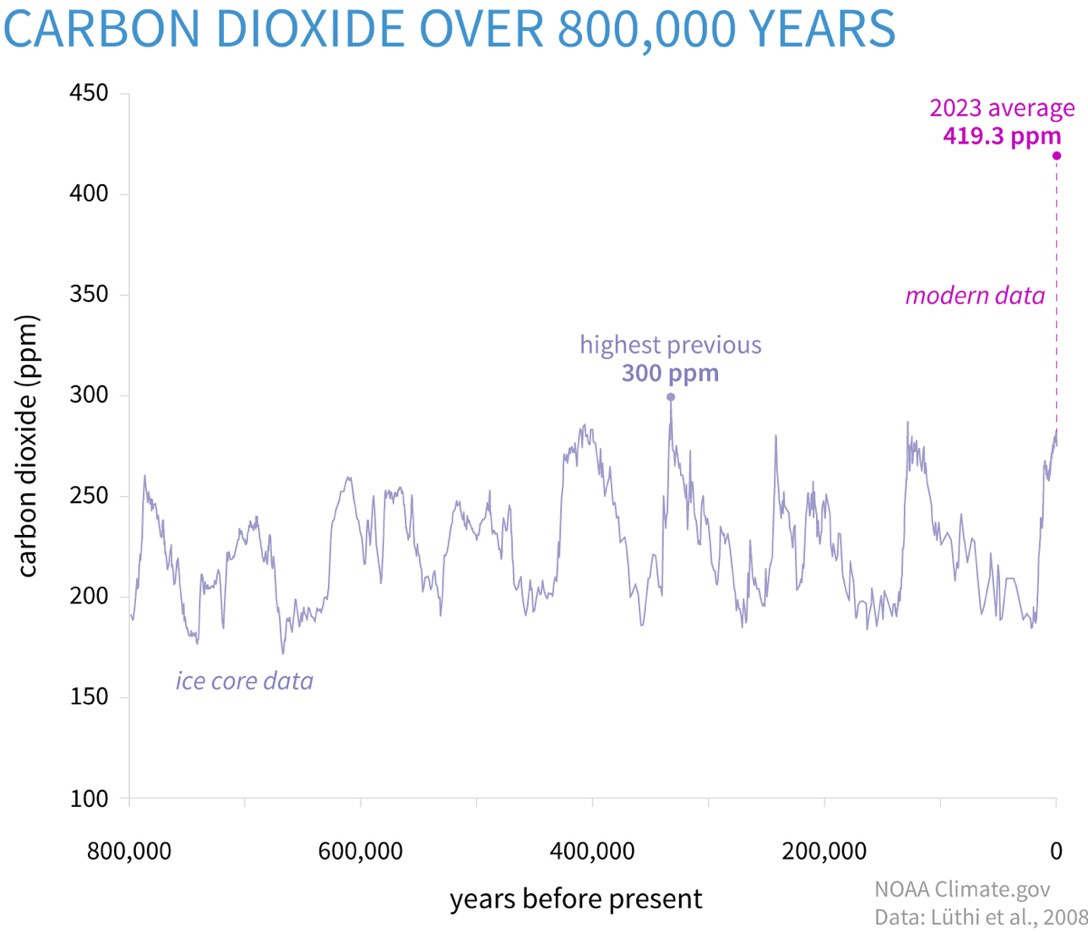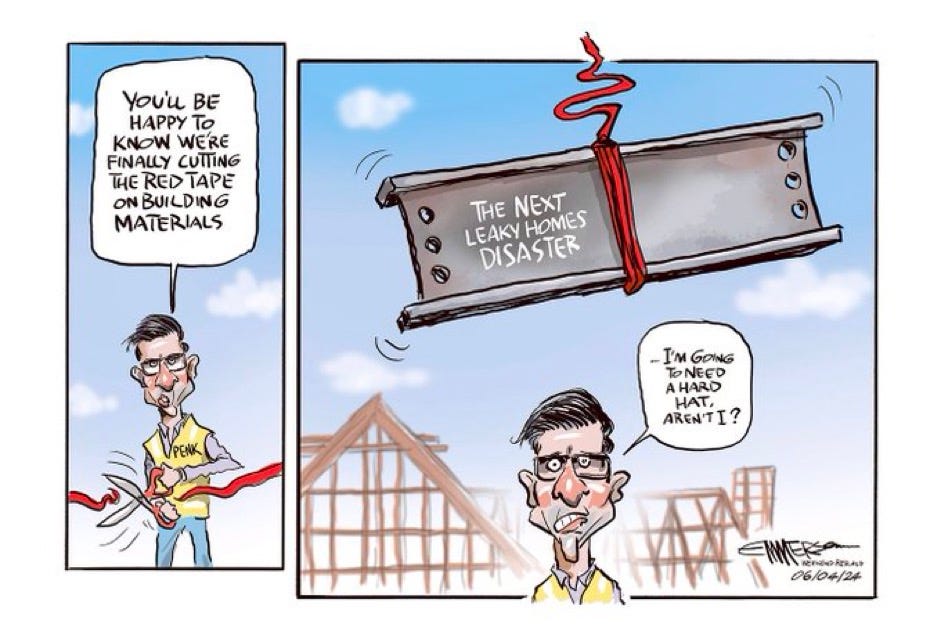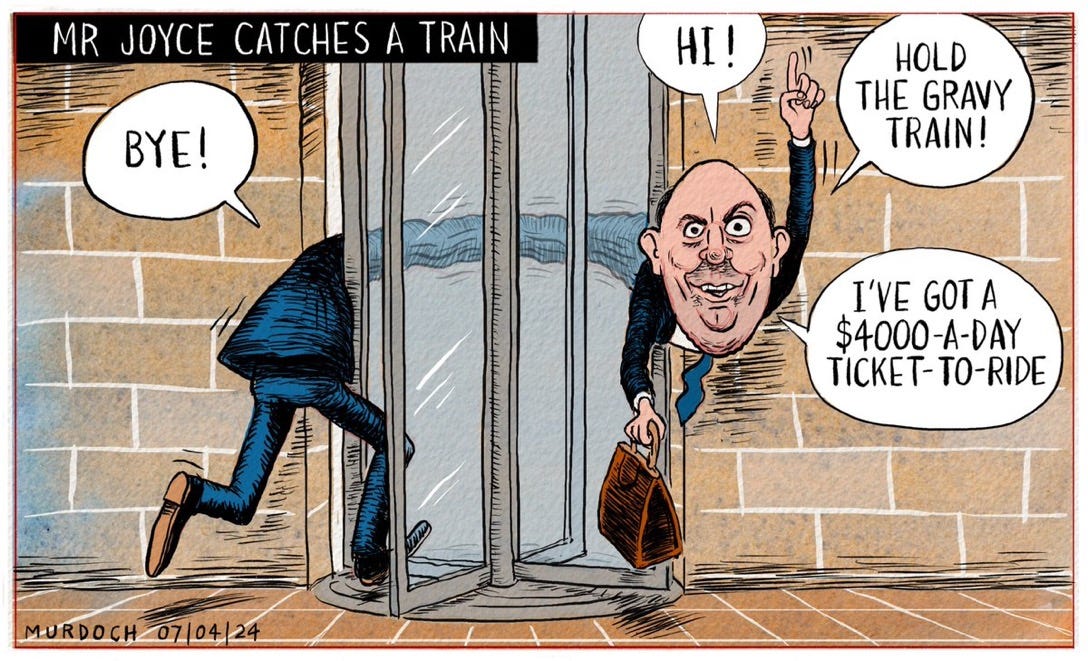
TL;DR: The six news items of note for me in Aotearoa-NZ’s political economy as of 9:06 am on Monday, April 8 are:
The Government is setting up its own experts group to review the goalposts for farmers to reduce methane emissions by as much as 47% by 2050, effectively side-stepping the Government’s official advisors at the Climate Commission.
The experts are expected to adopt a new measure called GWP* , which would give farmers a free pass to reduce emissions only slightly, and may even allow them to claim their current methane emissions are cooling the planet. (See more below)
The Government is tightening temporary worker settings to make it harder for lower-skilled workers to get a visa and to stay for more than three years, partly by introducing an English language requirement. (See reaction and detail below)
Bus drivers, truck drivers, welders and fitters and turners are being taken off the list for quick ‘work-to-residence’ visas, and franchisees will no longer being able to get in with a temporary work visa. (See more detail and analysis below)
The Government has allowed funding to be pulled for two major longitudinal studies of poor children in Aotearoa-NZ, which may cripple its own social investment drive. (See more in quotes of the day below)
Both decisions were announced only quietly at departmental level and call into question whether compliance with the Child Poverty Reduction Act can even be measured.
(Paying subscribers can see more detail and analysis below the paywall and in the podcast above. We’ll open it up for public reading, listening and sharing if they give permission by getting over 100 likes.)
Govt side-steps Commission to find asterix for farmers
Agriculture Minister Todd McClay and Climate Change Minister Simon Watts announced on Saturday they were setting up independent panel of experts to review agricultural biogenic methane science and targets in the Carbon Zero Act “for consistency with no additional warming.” The Act specifies biogenic methane emissions must be lowered from 2017 levels by 10% by 2030 and by 24 to 47% by 2050.
Farming lobby groups are expected to argue the target use the GWP* (Gross Warming Potential *) measure for methane emissions, rather than the current GWP100 measure, which measures the warming potential for methane over 100 years. The GWP* measures changes in emissions over decade-long timescales rather than absolute levels.
Opponents of shifting the goalposts argue that by taking current levels of methane emissions as their baseline, high-polluting countries and companies can use GWP* to present even minor reductions in methane as negative emissions or cooling, as detailed here via Down To Earth in its summary of a report on GWP* vs GWP100 last year called Seeing Stars (bolding mine):
The researchers looked at different levels of emissions reductions for Tyson, one of the world’s largest processors of chicken, beef and pork and Fonterra, the largest dairy exporting company. Using both GWP100 and GWP* metrics, they found that companies could claim climate neutrality with tiny levels of annual emissions reductions, 1.4 per cent and 1.7 per cent, respectively, by using the second method.
With a 30 per cent emissions reductions by 2030, Tyson would be responsible for roughly 58.5 million tonnes of CO2-equivalent using GWP100. Half of these emissions would be from methane. The emissions amount is similar to the annual emissions of Peru.
However, using GWP* could enable the company to claim to be reducing around 82.6 million tonnes of CO2 equivalent from the atmosphere.
For Fonterra, a 30 per cent reduction between 2020 and 2030 calculated with GWP* would enable the company to claim negative emissions (efforts in which CO2 is being removed from the atmosphere) of minus 19 million tonnes of CO2 equivalent. But GWP100 calculations showed it would still be responsible for roughly 21.6 million tonnes of CO2-equivalent — similar to annual emissions of Sri Lanka. Down To Earth summarising last year’s Seeing Stars report
Shifting goalposts?

Lower-skilled non-English speakers & franchisees uninvited
Immigration Minister Erica Stanford yesterday announced a swathe of changes to Accredited Employer Work Visa (AEWV) and other visa settings to reduce what she described as “unsustainable levels” of immigration. There was record inward migration of 173,000 non-New Zealand citizens. in 2023.
The changes detailed at Immigration NZ included:
introducing English language requirements for lower-skilled level 4 and 5 applicants;
cutting the length of continuous work visas for level 4 and 5 visas to three years from five years;
removing franchisees from the AEWV scheme; and,
removing welders, fitters and turners, bus drivers and truck drivers from the ‘Green List’ work-to-residence pathway.
Civil Contractors CEO Alan Pollard told 1News and BusinessDesk-$$$ contractors would be angry, coming on top of suspensions of projects.
Stanford told RNZ this morning she would turn the tap the other way if shortages emerged again.
"That's the nature of the immigration system. I tell you what, next year, I might be saying 'loosen them again'. That's what happens. You know, you recalibrate your immigration settings to the current economic settings, and that's exactly what we're doing. It's what any responsible good minister would do." Erica Stanford talking to Corin Dann at RNZ.
Flying blind with social investment
In astonishingly stupid decisions that will cripple the Government’s ability to target social investment, it has effectively shut down both the largest and the longest-running large scale longitudinal surveys of Aotearoa-NZ’s poorest children. RNZ’s John Gerritsen reported on Friday the Ministry for Social Development had not renewed the contract for the Growing up in New Zealand project at the end of February.
Newsroom’s Laura Walters reported last week that Stats NZ had also quietly stopped funding its Living in Aotearoa longitudinal survey set up measure child poverty in line with the Child Poverty Reduction Act of 2018. Both were done to save money as part of the Government’s 6.5% and 7.5% baseline funding cuts directed to help fund tax reductions. (See more below in Quotes of the day)
Quotes of the day
Growing up in NZ silenced
“Now with another quiet Friday afternoon cancellation of govt funding for longitudinal data--the Growing Up in New Zealand--we effectively have discontinued funding the collection of longitudinal data on tamariki Māori and Pacific children in Aotearoa NZ. StatsNZ are making big changes to our data landscape with little consultation. I wrote about the quiet cancellation of the Living in Aotearoa survey last week. This means we won't have a good measure of persistent child poverty--something the govt is mandated to report on. Director of the Roy McKenzie Centre for the Study of Families and Children at Victoria University of Wellington Kate Prickett via X
Living in Aotearoa silenced
“In short, fewer or noisy data will lead to less effective and efficient policies, exacerbate inequities, and cost more in the long run. In this way, it’s important to think of the data we collect as infrastructure. It needs continued investment and, if we don’t, we’ll end up paying more for it in the long run.” Prickett last week after Stats NZ scrapped funding for another large longitudinal survey, Living in Aotearoa, as reported by Newsroom’s Laura Walters on Thursday.
Child poverty data unsustainable
“The unsustainable nature of the survey led to my decision to discontinue the Living in Aotearoa survey,” Stats NZ CEO and Government Statistician Mark Sowden told Walters, after he was directed by Finance and Social Investment Minister Nicola Willis to cut 7.5% from Stats NZ’s baseline spending. Via Newsroom
La la la
“The coalition Government is committed to doing everything it can to turn around the worsening child poverty rates that we inherited from the previous government, and having good quality data is a key part of that work.” Child Poverty Reduction Minister Louise Upston said. Via Newsroom
Chart of the day
Relative performance

Climate chart of the day
Should lead 6 pm news every day

Cartoons of the day
Don’t look up

Bye! And hi again!

Timeline-cleansing nature pic of the day
Bundles of joy
Smile of the day

Ka kite ano
Bernard












